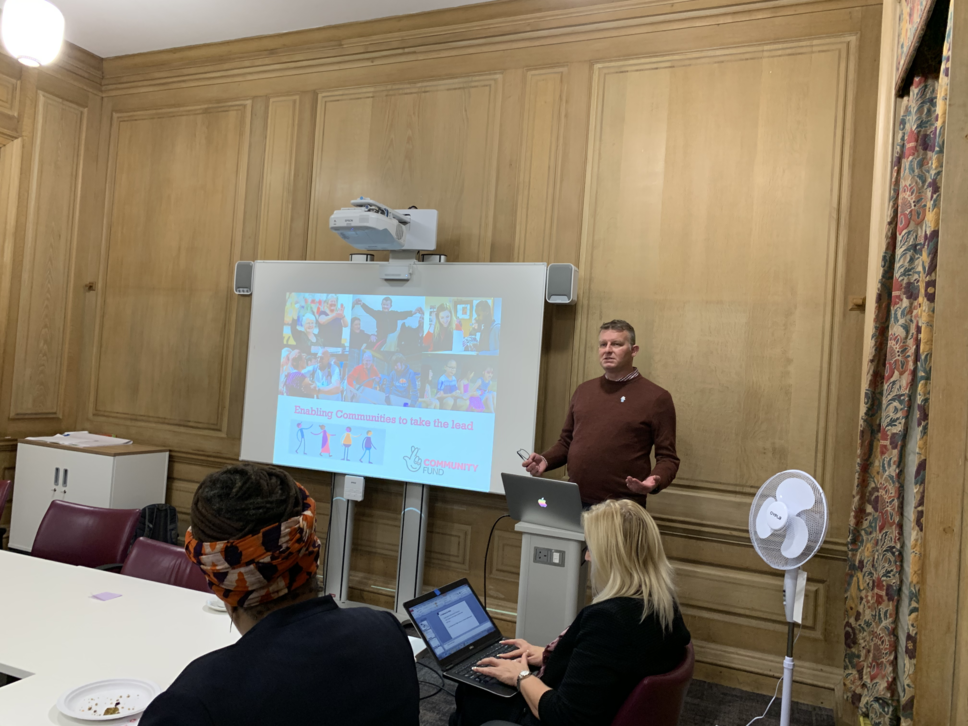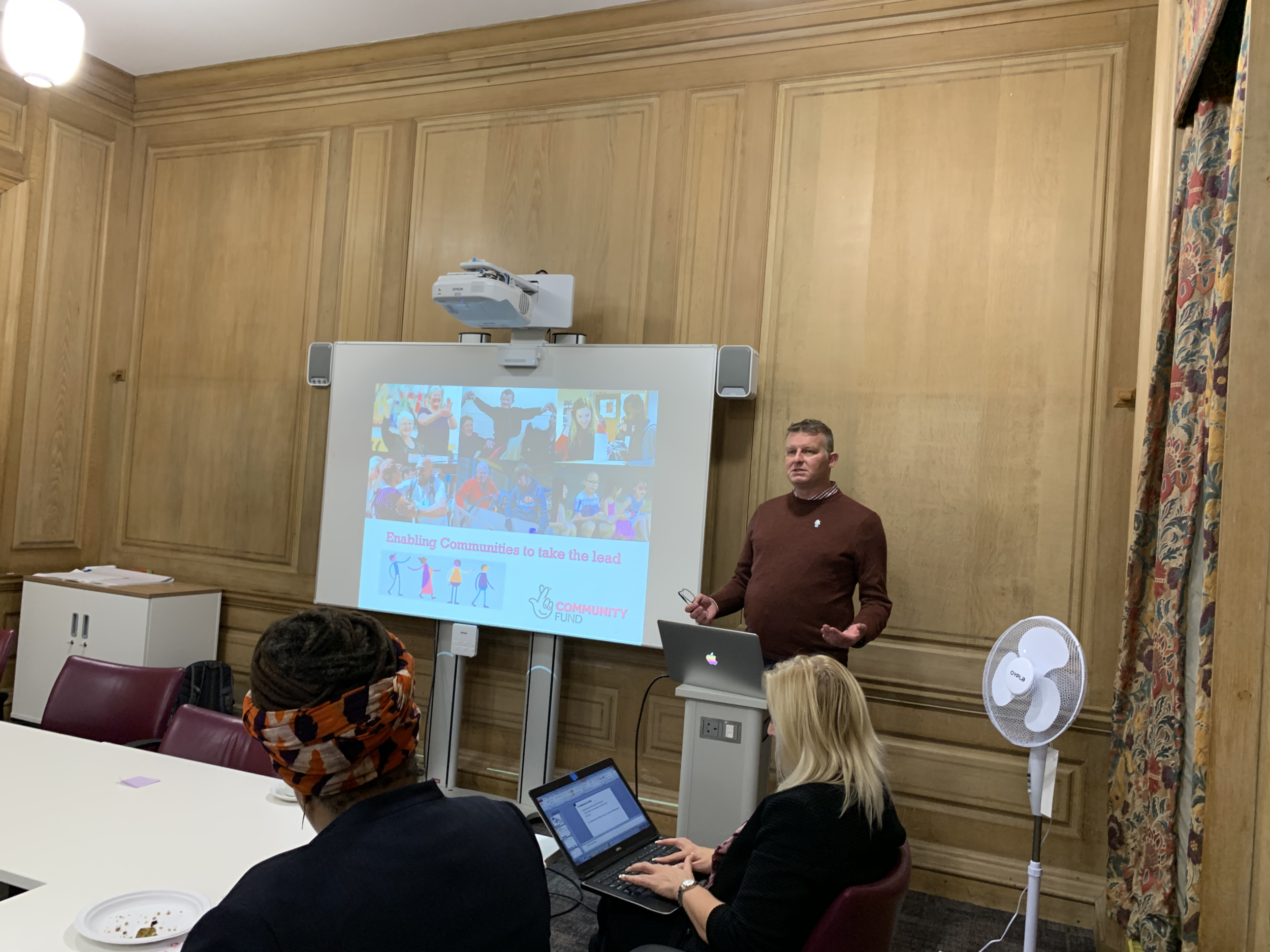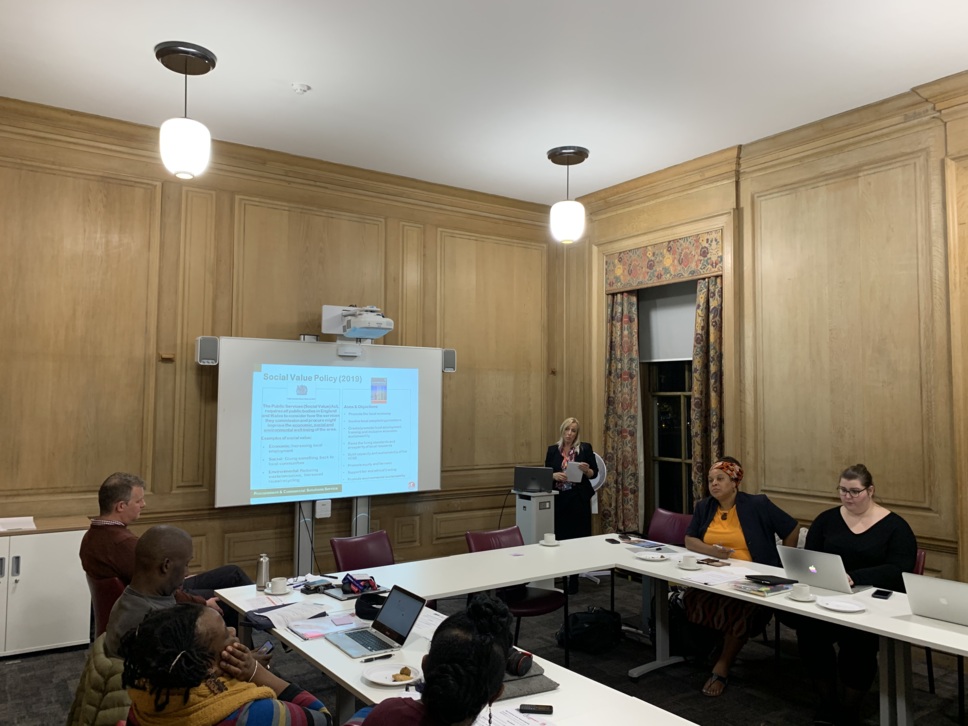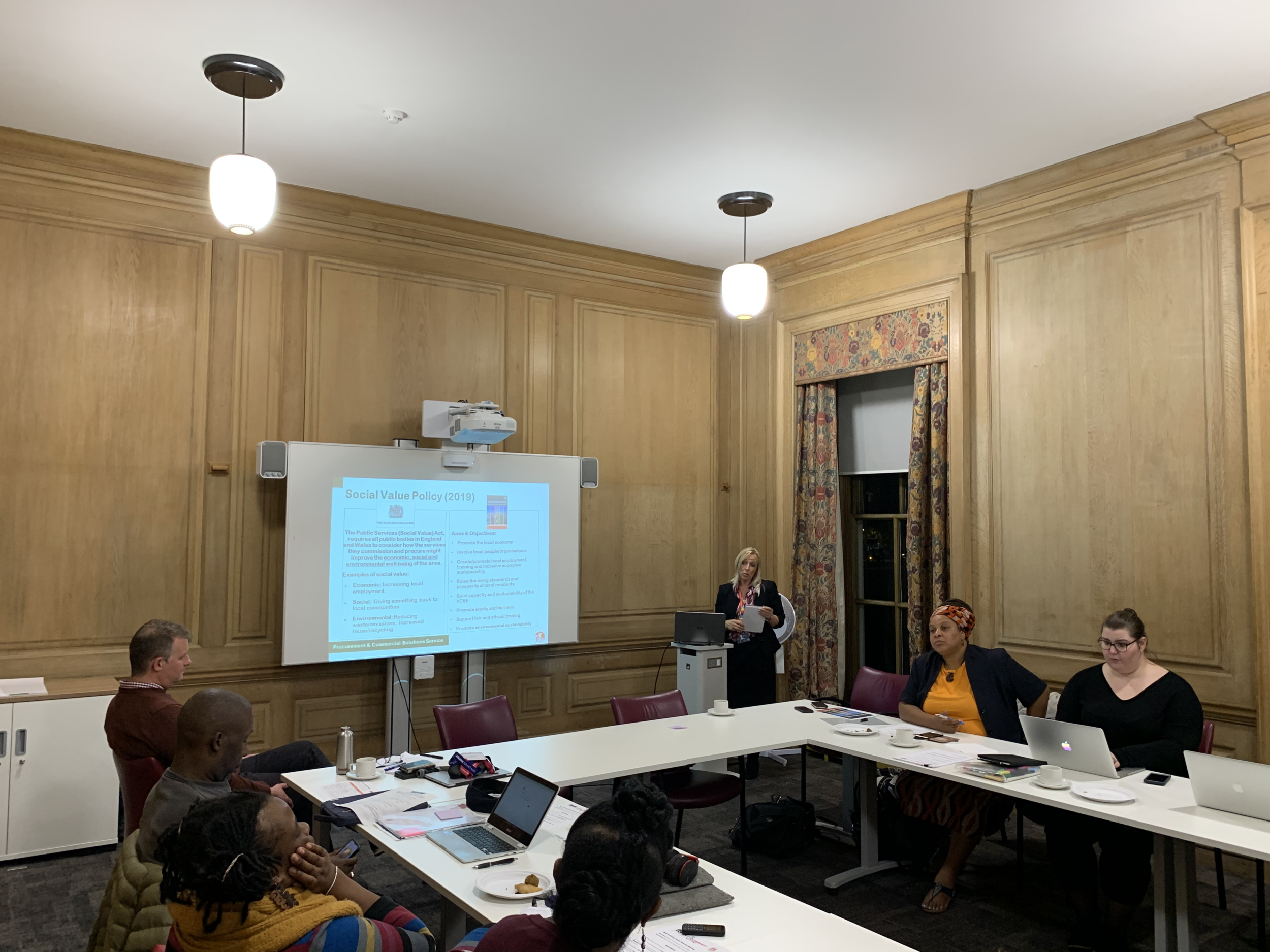On Monday 21st October, BSWN hosted the latest BAME Voluntary & Community Sector Network meeting at City Hall and completed the first cycle of bi-monthly meetings as part of the programme funded by Power to Change to enhance connectivity within the BAME VCS Sector.
After the habitual welcome & introductions, the Network’s Chair Jendayi Serwah updated the attendees on the most recent progress of the Super 6: the key community organisations currently undertaking an intensive business development programme to improve capacity and sustainability within the Sector.
Two representatives from the Super 6 cohort were invited to present a testimony of the programme’s impact. The first to take the word was Abdullahi Farah from the Somali Resource Centre. With a core staff of only 2 members and the responsibility to serve more than 2 thousand end-users, Abdullahi highlighted the extreme lack of capacity to meet the needs and the lack of technical expertise required to develop a funding strategy and draft funding bids. He then explained how the work that he is undertaking with the Super 6’s Business Development Consultant Sona Matani and the other key community organisations is helping the Somali Resource Centre to move towards a more sustainable place.
"BSWN offered support so that we were able to develop a business plan and understand the struggle of our organisation. They also helped by bringing together organisations that are similar to us. That is very good because we are learning from other organisations that are in similar situations. It's not only that the professional consultant is providing training and helping us, it's also learning from each other and how to support each other, that is also very important for us."
Afterwards, Abdul Ahmed from the Bristol Somali Forum was invited to bring further testimony. Reiterating how the current Somali-led organisations are severely underfunded and lacking the capacity to address the needs of the Somali community in Bristol, Abdulkadir agreed on the points above-mentioned. Once again, networking with organisations that are facing similar systemic barriers in the city-region and the opportunity to share advice and information with them was recognised as a key element for the revitalisation of the Sector.
"Coming together, working together, exchanging. That is very important; sharing information. And we do that if we are kept together. […] United we stand."
The Chair then invited Tim Temple to present on the different funding opportunities that the National Lottery Community Fund has to offer and any relevant details on the application processes and eligibility criteria.
Moreover, further information was shared by Jacqueline Miller, MCIPS Procurement & Commercial solutions Service at Bristol City Council, who illustrated the new national framework for measuring social impact.
The following discussion provided feedback on both presentations:
1. The measuring framework was deemed too technical and the vocabulary sometimes inaccessible for small organisations with limited capacity.
2. The trend to fund big organisations that will subcontract community organisations is considered counterproductive and less efficient than contracting the grassroots organisations directly.
3. More work needs to be done in collaboration with the community to facilitate the understanding of application processes and eligibility criteria.
4. The disproportion of underpaid BAME-led organisations in the third sector should be a priority. Accountability and transparency are key in addressing this.








